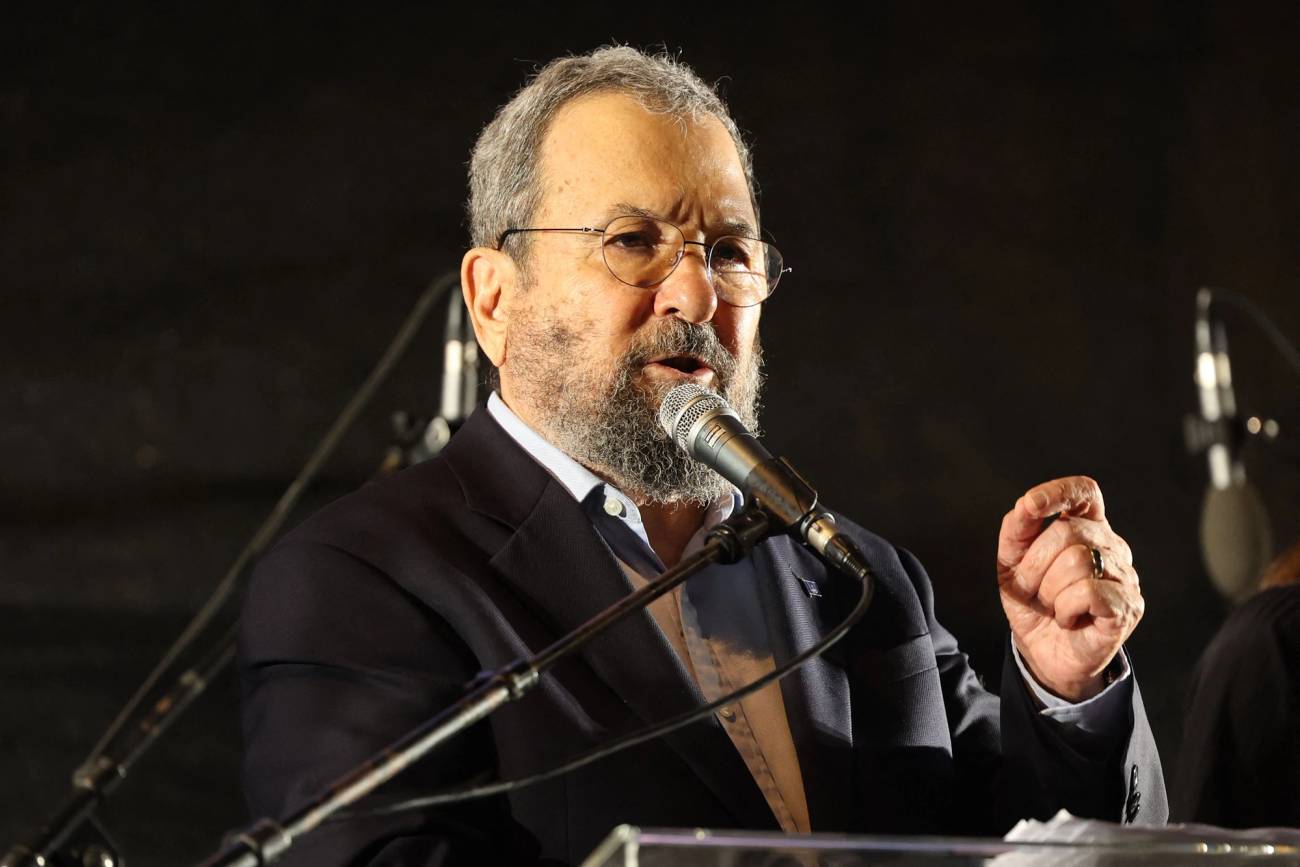 Skandaliczny plakat dotyczący reparacji pokazany w prawicowej telewizji (Twitter.com)
Skandaliczny plakat dotyczący reparacji pokazany w prawicowej telewizji (Twitter.com)
 Żądając od Niemiec reparacji za II wojnę, dajemy Litwie prawo do roszczeń wobec Polski za okupację Wileńszczyzny
Żądając od Niemiec reparacji za II wojnę, dajemy Litwie prawo do roszczeń wobec Polski za okupację Wileńszczyzny
Jarek Gryz
Dziewięć lat temu amerykański publicysta Ta-Nehisi Coates opublikował w „The Atlantic” przełomowy artykuł „The Case for Reparations”, w którym argumentował za wypłatą odszkodowań czarnoskórym Amerykanom za dziesiątki lat niewolnictwa, a potem dyskryminacji.
Nie był to oczywiście pierwszy raz, kiedy takie wezwanie sformułowano, ale odzew, jaki wywołał Coates, zmusił tym razem amerykańskich polityków do działania. Jedną z pierwszych decyzji Bidena po objęciu stanowiska prezydenta była deklaracja powołania parlamentarnej komisji do zbadania pokłosia niewolnictwa i naprawienia krzywd jego ofiarom. Ale kwestia odszkodowań nie jest wcale w USA popularna; tylko jedna trzecia obywateli ją popiera, a wśród czarnoskórych – tylko połowa. Dzieje się tak zapewne ze względu na możliwe koszty tego przedsięwzięcia, ale może nawet bardziej ze względu na jego uzasadnienie. Nikt nie potrafi bowiem jasno odpowiedzieć na pytania: kto, komu, ile, za co?
Pierwszy konkretny ruch dla realizacji postulatów Coatesa zrobiła Kalifornia. Trzy lata temu powołano tam specjalną komisję do zbadania dyskryminacji mniejszości rasowych, głównie czarnoskórych Amerykanów, i ustalenia wysokości odszkodowań, które należy im wypłacić. Liczący setki stron raport pokazuje historyczne przypadki takiej dyskryminacji i wynikające z niej różnice stanu zdrowia, wykształcenia czy majątku między rasami. Dla oszacowania wartości utraconego zdrowia komisja zaproponowała następującą formułę.
Przyjęto, że życie ludzkie warte jest 10 mln dolarów, i podzielono tę wartość przez lata życia przeciętnego białego. Następnie pomnożono wynik przez różnicę w długości życia białych i czarnych Kalifornijczyków, określając w ten sposób stratę, jaką ponieśli czarnoskórzy pod tym względem.
Podobne formuły zastosowano do oszacowania odszkodowań za dyskryminację w innych dziedzinach. W rezultacie komisja wyliczyła, że każdemu czarnoskóremu Kalifornijczykowi przysługuje 1,2 mln dolarów rekompensaty (San Francisco, jako bardziej postępowe, podniosło zaraz tę sumę do 5 mln). Wypłacenie odszkodowań wszystkim uprawnionym kosztowałoby stan 800 mld dolarów.
Każdy agresor był kiedyś ofiarą
Zwolennicy wypłaty odszkodowań za dyskryminację rasową powołują się na istniejące precedensy. W 1952 roku Niemcy wypłaciły Izraelowi odszkodowania za straty materialne poniesione przez Żydów w czasie Holocaustu. W samych Stanach Zjednoczonych Amerykanie japońskiego pochodzenia skutecznie dochodzili roszczeń od rządu federalnego za internowania w czasie drugiej wojny. Ale w obu tych przypadkach winowajca był jasno określony, a krzywdy – dość łatwe do oszacowania. I w żadnym z tych przypadków nie próbowano obecnych różnic między grupami tłumaczyć przeszłymi krzywdami doznanymi przez jedną z nich.
Formuła użyta do kalkulacji odszkodowań przez kalifornijską komisję – choć surrealistyczna – jest klarowna. Jest to próba zignorowania czynnika, który najbardziej gmatwa dyskusję nad odszkodowaniami – czasu. Albowiem upływ czasu mąci wodę. Brytyjska filozofka Onora O’Neill sformułowała tę trudność w taki sposób: „Roszczenia odszkodowawcze muszą wykazać, że następująca strata lub krzywda jest wynikiem uprzedniego bezprawia. Tam, gdzie wyrządzone krzywdy są odległe w czasie, jest to bardzo często niemożliwe. (…) O ile nie potrafimy wskazać związku przyczynowego, nie możemy stwierdzić, kto zyskał dzięki historycznemu bezprawiu i kto powinien teraz ponosić koszty rekompensaty dla upośledzonych współcześnie przez owo bezprawie”. Upływ czasu ma oczywiste znaczenie dla wiarygodności i wagi roszczeń.
Groteskowe byłoby wysyłanie dziś do Ułan Bator rachunku za najazd i śmierć Henryka Pobożnego osiem wieków temu.
Z drugiej strony bezdyskusyjne było, że niemiecki rząd po drugiej wojnie zobowiązany był zwrócić mienie zagrabione Żydom albo zrekompensować im straty. W tym przypadku państwo, które reprezentowali nazistowscy przestępcy, i tożsamość ich żydowskich ofiar, a także relacje między ofiarami a ich spadkobiercami były jasne. A szkoda była określona i mierzalna. W takim przypadku rekompensata i odszkodowanie były w pełni uzasadnione.
Czy jest zatem jakaś cezura czasowa, poza którą roszczenia odszkodowawcze tracą walor? Pamiętajmy, że odszkodowanie współcześnie żyjącym przysługuje wtedy, gdy potrafimy pokazać, jak krzywda wyrządzona wiele lat temu spowodowała ich obecny niedostatek. Należy więc pokazać, że status ekonomiczny czarnoskórych Amerykanów jest dziś gorszy, niż mógłby być, gdyby nie niewolnictwo i segregacja rasowa (która skończyła się w latach 60. XX wieku). Podobnie
należy pokazać, że Polska jest dziś uboższym krajem, niż mogłaby być, gdyby nie wojenne zniszczenia. Co więcej, musimy też pokazać, że ci, od których żądamy odszkodowań, rzeczywiście ponoszą za przeszłe krzywdy moralną odpowiedzialność. Tymczasem ponad 20 proc. mieszkańców Niemiec to imigranci lub ich dzieci, a pozostałych też trudno winić za występki ich dziadków.
Jeśli jednak stracimy z oczu bezpośrednich sprawców wyrządzonych krzywd, to paradoksalnie przestaje mieć znaczenie, jak wiele czasu od owych zdarzeń upłynęło. Jeden z byłych dyplomatów brytyjskich wspomina rozmowę, którą odbył wkrótce po odzyskaniu przez Nigerię niepodległości z jednym z nowych przywódców tego kraju. Kiedy Nigeryjczyk zażądał odszkodowań za lata kolonialnego wyzysku, dyplomata odpowiedział mu: „Absolutnie się zgadzam. Dostaniecie odszkodowanie natychmiast, jak my dostaniemy nasze od Rzymian”. Ta anegdota ilustruje też dobitnie historyczną zmienność ról przy żądaniach odszkodowawczych: każdy agresor był kiedyś ofiarą i na odwrót.
Wysuwając wobec Niemiec roszczenia za szkody sprzed 80 lat, przyznajemy tym samym prawo Litwie do podobnych pretensji wobec Polski – za 20-letnią okupację Wileńszczyzny.
Wspomniany na wstępie artykuł Coatesa był tak przełomowy, ponieważ autor zaproponował zupełnie nową metodologię w dyskusji o roszczeniach (skądinąd zastosowaną potem przez kalifornijską komisję). Coates unika całkowicie trudności opisanych powyżej, bo nie dochodzi szczegółowo, w jaki sposób dyskryminacja doprowadziła do upośledzenia ekonomicznego czy edukacyjnego czarnoskórych Amerykanów. Zamiast tego koncentruje się na skutkach tejże dyskryminacji i apeluje o ich eliminację.
Oto główna teza autora: „Pew Research Center szacuje, że rodziny białych Amerykanów mają dwadzieścia razy większy majątek niż rodziny ich czarnoskórych współobywateli. Nie ma chyba lepszej miary ilustrującej haniebną tradycję naszego kraju niż ta majątkowa przepaść. Odszkodowania będą służyć jej zasypaniu”. Nietrudno zauważyć, że jest to teza tyleż radykalna, co całkowicie nieuprawniona. Istnienie różnic majątkowych między rasami nie dowodzi, że ich jedynym – czy wręcz jakimkolwiek – źródłem była dyskryminacja. Wspomniana wcześniej O’Neill tłumaczy to jednoznacznie: „Odszkodowanie należy się za straty wywołane przez poprzedzające je wykroczeni, a nie po prostu za obecne niedostatki jakkolwiek spowodowane”. Co więcej, wracamy znowu do kwestii odpowiedzialności: dlaczego obecnie żyjący Amerykanie – i którzy z nich – mieliby płacić za grzechy swych przodków? I wreszcie, jak zauważył trzeźwo jeden z krytyków, a co jeśli 10-20 lat po wypłacie odszkodowań różnice majątkowe nadal będą istniały? Czy to znaczy, że odszkodowanie było za niskie i należy je wypłacać dopóty, dopóki różnice majątkowe nie znikną?
Śmierci ludzi zrekompensować się nie da
Ale najciekawszy chyba argument przeciw roszczeniowej gorączce w USA wyszedł od kanadyjskiego psychologa i publicysty Jordana Petersona. Nie jest to argument merytoryczny, bo nie dotyczy uzasadnienia czy wysokości odszkodowań, ale – jak na psychologa przystało – odnosi się do motywacji tych, którzy zgłaszają finansowe pretensje za wyrządzone szkody. Jest to według Petersona klasyczny przykład resentymentu. Resentyment to pojęcie z zakresu psychologii moralnej rozwinięte przez filozofów Fryderyka Nietzschego i Maxa Schelera. Jest to duchowe samozatrucie pociągające za sobą trwałą skłonność do fałszowania wartości i ocen moralnych. Odruchami uczuciowymi, które wywołują tę skłonność, są mściwość, nienawiść, zazdrość, zawiść. Ta odpychająca dyspozycja emocjonalna jest źródłem dość oczywistych patologii psychologicznych i społecznych.
Oto skąd według Schelera resentyment się bierze: „Podstawowym punktem wyjścia w resentymencie jest odruch zemsty. Poprzednikiem każdego odruchu zemsty muszą być atak lub krzywda. Tutaj jednak ważne jest, że odruch zemsty nie pokrywa się z odruchem odpowiedzi cios za cios ani z odruchem obrony. Fakt zemsty cechują dwa znamiona szczególne: zahamowanie, przesunięcie reakcji zwrotnej na później, do chwili gdy powstaną okoliczności bardziej sprzyjające i wyraźne poczucie »bezsilności«. Sama więc zemsta jest przede wszystkim sprawą ludzi pod jakimś względem »słabych«.
Drugim punktem wyjścia dla resentymentu są zazdrość i rywalizacja. W przeżyciu zazdrości samo posiadanie przez kogoś innego dobra, do którego dążymy, dane nam jest zatem po prostu jako »zabranie« nam go przez innego człowieka”. A Nietzsche dodaje: „Resentyment dotyczy istot, które nie umiejąc reagować właściwie, tj. czynem, znajdują wyłączną rekompensatę w zemście wyimaginowanej. Cechy człowieka słabego: nieofensywność, nawet tchórzostwo tak częste u niego, gotowość wystawania u drzwi, wewnętrzny przymus wyczekiwania”. Zwróćmy uwagę, że
za każdym żądaniem odszkodowania stoi jakaś krzywda, za którą nie mogliśmy i nie możemy wziąć odwetu, bo byliśmy za słabi.
I dlatego kiedy „żądamy” rekompensaty, to tak naprawdę tylko się napraszamy, bo żądać może wyłącznie ten, kogo stać na egzekucję roszczeń. Stawiamy się w oczach naszego ciemiężcy w roli ofiary, która zasługuje na litość i być może jałmużnę. W rezultacie upokarzamy się, licząc, że coś skapnie nam z pańskiego stołu.
Oczywiście, nie każde żądanie odszkodowawcze podszyte jest resentymentem. Tam, gdzie chodzi o konkretne dobra, a sprawcy są znani, apelujemy po prostu o sprawiedliwość. Ale dla niektórych ludzi nawet taki „apel” jest zbyt upokarzający. Ciekawą ilustracją tego przypadku była historia negocjacji izraelsko-niemieckich w 1952 roku.
Decyzja o rozpoczęciu negocjacji wywołała w Izraelu gwałtowne protesty. Przeciwko jakiejkolwiek ugodzie z Niemcami protestowała niemal cała opozycja polityczna. W dzień debaty nad porozumieniem Menachem Begin zorganizował przed Knesetem ogromną demonstrację, w czasie której doszło do starć z policją. Setki ludzi zostało aresztowanych, a wielu było rannych. Była to w historii Izraela najbardziej znacząca próba wywarcia społecznej presji na demokratycznie wybrany parlament. Zgoda Knesetu na negocjacje bynajmniej nie zakończyła protestów. Kilka miesięcy później oficer izraelskiej armii Dov Shilansky został aresztowany przed gmachem ministerstwa spraw zagranicznych z bombą, którą zamierzał tam zdetonować. Kilka bomb wysłanych zostało pocztą do kanclerza Adenauera, a eksplozja jednej z nich zabiła policjanta.
Skąd ta wrogość do przyjęcia odszkodowań? Otóż
dla wielu Żydów przyjmowanie pieniędzy od Niemców było upokarzające. Nie chcieli oni litości od swych oprawców i uważali, że przyjmowanie od nich pieniędzy uwłacza pamięci zabitych.
Nie pomogło nawet to, że Światowy Kongres Żydowski, który był stroną w negocjacjach, na samym ich wstępie przyjął uchwałę, że mają one dotyczyć wyłącznie strat materialnych, sugerując, że śmierci ludzi zrekompensować się nie da. A sam Ben Gurion, rozpoczynając negocjacje, powiedział, że robi to nie dla rekompensaty, ale po to, by „mordercy Żydów nie stali się też ich [materialnymi] spadkobiercami”. Wielu Żydów chciało prawdziwego odwetu czynem. Przyznał się do tego nawet Ben Gurion, tak tłumacząc swoją decyzję: „Jeśli mógłbym odebrać Niemcom ich dobytek bez konieczności siadania z nimi nawet na minutę, ale w jeepach i z karabinami maszynowymi (…), tobym to zrobił. Ale nie mogę”.
Skąd ta wrogość do przyjęcia odszkodowań? Otóż
dla wielu Żydów przyjmowanie pieniędzy od Niemców było upokarzające. Nie chcieli oni litości od swych oprawców i uważali, że przyjmowanie od nich pieniędzy uwłacza pamięci zabitych.
Nie pomogło nawet to, że Światowy Kongres Żydowski, który był stroną w negocjacjach, na samym ich wstępie przyjął uchwałę, że mają one dotyczyć wyłącznie strat materialnych, sugerując, że śmierci ludzi zrekompensować się nie da. A sam Ben Gurion, rozpoczynając negocjacje, powiedział, że robi to nie dla rekompensaty, ale po to, by „mordercy Żydów nie stali się też ich [materialnymi] spadkobiercami”. Wielu Żydów chciało prawdziwego odwetu czynem. Przyznał się do tego nawet Ben Gurion, tak tłumacząc swoją decyzję: „Jeśli mógłbym odebrać Niemcom ich dobytek bez konieczności siadania z nimi nawet na minutę, ale w jeepach i z karabinami maszynowymi (…), tobym to zrobił. Ale nie mogę”.
Zawartość publikowanych artykułów i materiałów nie reprezentuje poglądów ani opinii Reunion’68,
ani też webmastera Blogu Reunion’68, chyba ze jest to wyraźnie zaznaczone.
Twoje uwagi, linki, własne artykuły lub wiadomości prześlij na adres:
webmaster@reunion68.com




